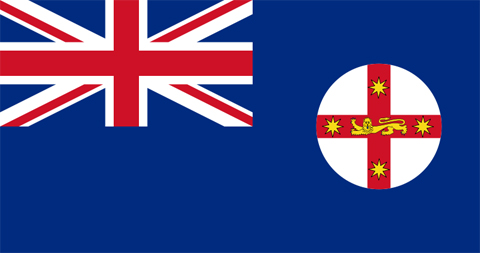NSW Parliament in Australia passes motion condemning Azerbaijan aggression
\n
NSW Parliament in Australia passes motion condemning Azerbaijan aggression –
\n
\n
SYDNEY: The New South Wales Legislative Council adopted a motion on Wednesday 10th September 2014, adding its voice to the international condemnation of Azerbaijan on its aggression directed towards the Republic of Nagorno-Karabakh and the Republic of Armenia.
The motion, which was moved in the Upper House of Australia’s largest State by the Hon. Rev. Fred Nile MLC, outlined the course of events whereby the Azeri armed forces on numerous occasions seriously violated the ceasefire agreement resulting in the deaths of nine Armenians.
International condemnation of Azerbaijan has continued as a result of Azerbaijan’s recent actions and the declaration of war made by Azeri President Ilham Aliyev via the popular social media platform, Twitter.
Executive Director of the Armenian National Committee of Australia (ANC Australia), Vache Kahramanian, has been working closely working with Members of Parliament to brief them on the recent developments in the South Caucasus and the dangerous escalation of violence demonstrated by Azerbaijan.
Kahramanian said: “Today the Parliament of New South Wales once again demonstrated its principled stance, confirming it stands firm with oppressed people from around the world.”
This motion follows on from the recognition of the Republic of Nagorno-Karabakh by the New South Wales Parliament in October 2012. Nile and a NSW Parliamentary delegation of seven visited Armenia and Nagorno Karabakh in 2013.
\n
The full text of the motion can be read below.
\n
1) That this House notes that over the course of seven days in July and August 2014, eight Armenians, including one civilian, were killed and seven wounded by Azeri forces during the following course of events:
(a) on 28 July 2014, Azeri snipers targeted International Committee of the Red Cross (ICRC) officials touring the Tavoush region in Armenia, and while there were no reports of causalities, the ICRC suspended its work in Armenia as a result of the sniper attacks,
(b) on the evening of 28 July 2014, Azerbaijan attempted a first incursion into Nagorno-Karabakh, resulting in the death of one Armenian soldier,
(c) on the evening of 31 July and 1 August 2014, Azerbaijan attempted a full-scale incursion into Nagorno-Karabakh with the support of elite military forces, and while they were again repelled by Armenian forces, two Armenian soldiers were killed and 14 Azeri died,
(d) on 2 August 2014, Azerbaijan continued heavy artillery fire across the line of contact in Nagorno-Karabakh and directly into Armenia, killing one Armenian soldier defending his post,
(e) on 3 August 2014, Azerbaijan continued to attempt a large-scale incursion into Nagorno-Karabakh, which was repelled by Armenian soldiers defending their territory,
(f) on 6 August 2014, an Armenian civilian farmer living on the Armenia/Azerbaijan border was captured by Azeri forces and paraded as a military combatant on State television, before later dying in custody with no explanation from Azeri authorities,
(g) on 7 to 9 August 2014, Azerbaijan President Ilham Aliyev threatened war via Twitter against Nagorno-Karabakh and Armenia, while Azeri forces continued to shoot towards the direction of Armenia and Nagorno-Karabakh on over 500 occasions, shelling the town of Aygepar and destroying numerous homes, and
(h) on 10 August 2014, the Russian President met with his Armenian and Azeri counterparts to discussion the escalation of violence and called for a peaceful negotiated settlement.
2. That this House further notes international condemnation of Azerbaijani aggression, including:
(a) United Nations Secretary General, Ban Ki-moon, urging Azerbaijan to ‘respect the ceasefire agreement, refrain from further violence and commit themselves to immediate de-escalation and continuing dialogue in the pursuit of a rapid and peaceful political solution’,
(b) OSCE Chairperson-in-Office and Swiss Foreign Minister, Didier Burkhalter, along with OSCE Minsk Group Co-Chairs expressing ‘deep concern about the fact that a clearly marked International Committee of the Red Cross vehicle came under fire while assisting the local population on the Armenian-Azerbaijani border on a humanitarian mission’, and ‘strongly condemning the deliberate targeting of civilians and shooting at representatives of international organizations and reminding the parties of their obligations under Geneva Conventions’,
(c) the State Department of the United States ‘expressing its concern about the escalation of violence along the Line of Contact that resulted in significant casualties on July 31’, ‘extending our condolences to the families of those killed or injured and calling on the sides to take immediate action to reduce tensions and respect the cease-fire’, and stating that ‘there can be no military solution to the conflict’ and that ‘retaliation and further violence will only make it more difficult to bring about a peaceful settlement’, and
(d) the Russian Ministry of Foreign Affairs ‘expressing our concerns over the aggravation of the situation on the Nagorno Karabakh conflict zone, which caused human casualties’, stating that ‘we qualify the recent incidents as a resinous case of violation of the ceasefire agreement and other arrangements’, and ‘urging the sides to show tolerance, refuse the use of force, and immediate steps for the stabilization of the situation’.
\n
\n
\n

